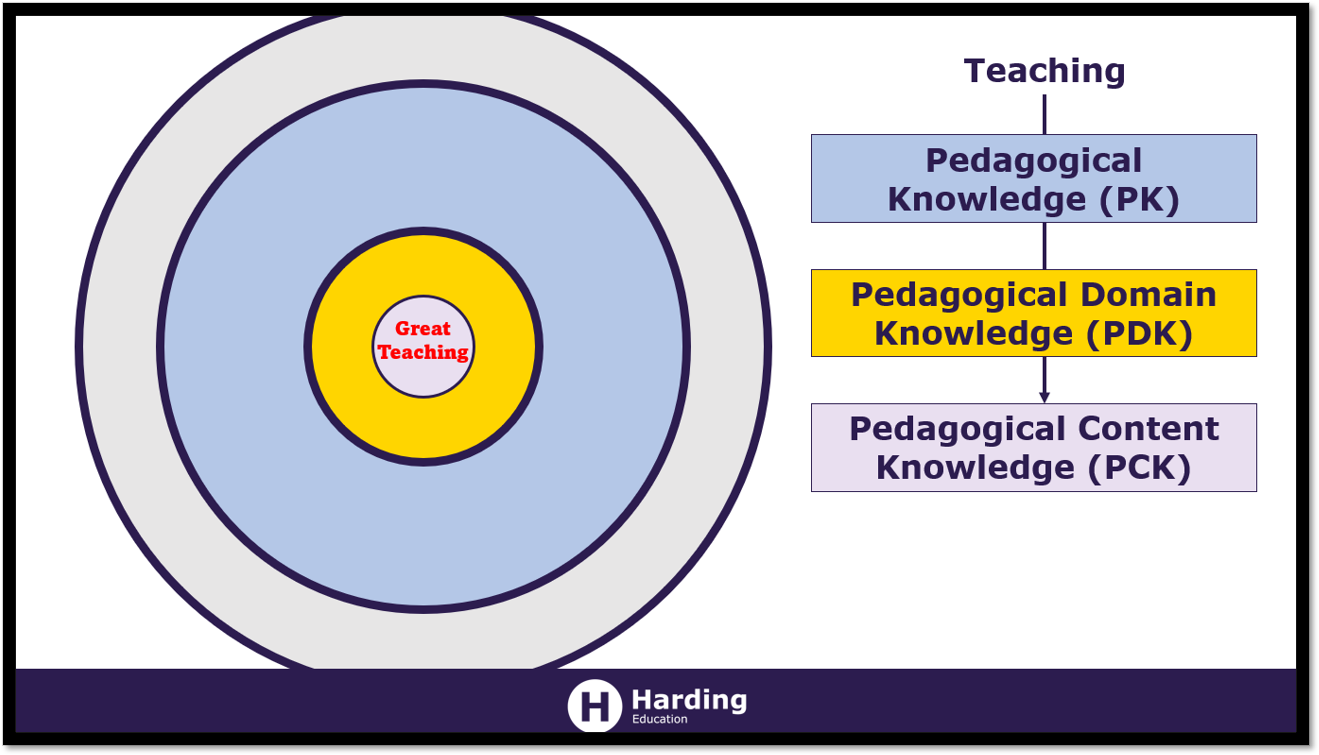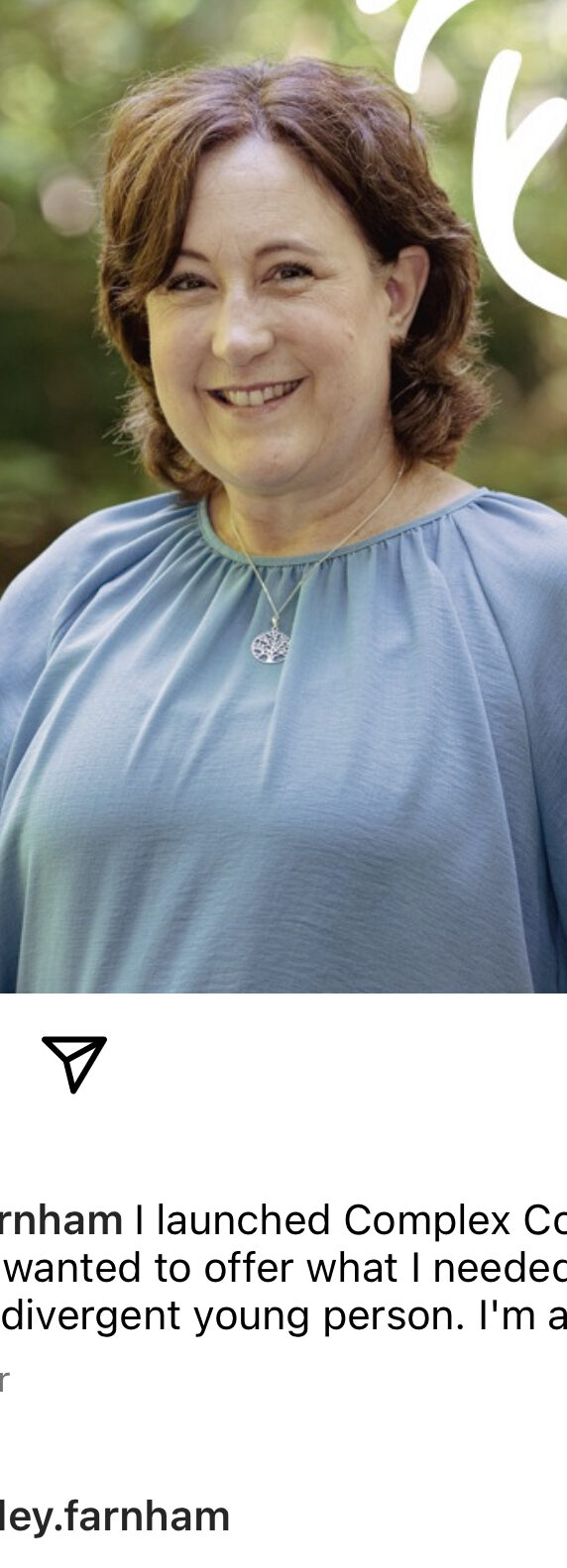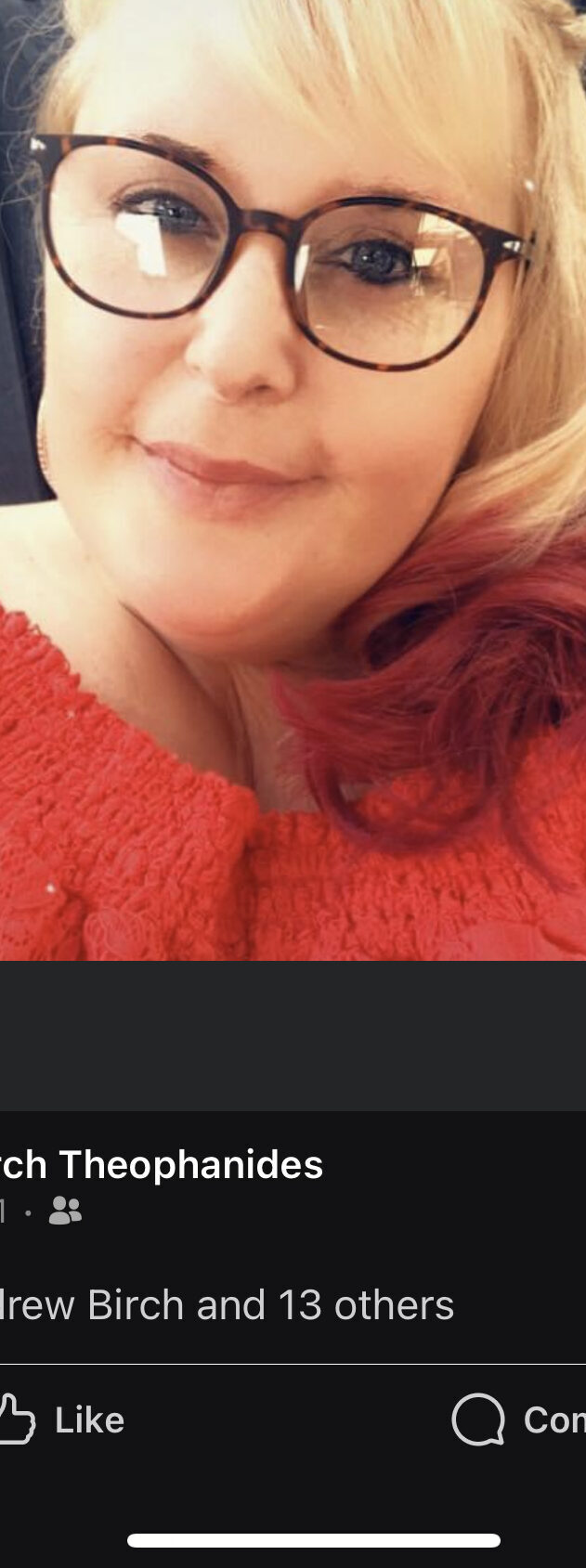Don’t you just love teaching? You can spend your entire career on a fun, highly moral, self-improvement journey and yet, still, no matter how good you get, you can always get better. The truth of perfect teaching is always just outside our grasp; eternally beautiful and eternally frustrating!
Here’s a quick way at looking deeper into the journey towards great teaching.
It’s useful to start with some of the background and foundational aspects of teaching. Being ‘a teacher’ includes simple, and not so simple, everyday routines; taking the register, ensuring students line up smartly, building relationships, giving out resources, timekeeping and so on. Carrying out these tasks can make one feel like ‘a teacher’ without even considering the issue of facilitating learning. Looking back, I’m sure some of the teachers I had at school carved out entire teaching careers based solely on this dimension of ‘teaching’.

But then we get to the issue of actually getting children to learn! This is why the word ‘pedagogy’ exists. It provides a useful distinction from broader teaching, giving us an unavoidable focus on what we can say and do to actualise learning. This includes aspects of teaching that are impactive regardless of the context (age of learners, curriculum subject, socio-economic location etc.). So, here we see teacher behaviours such as clarity of explanation, modelling, scaffolding tasks, effective questioning, responding to learners and so on. Without this pedagogical knowledge there is nothing to build on.
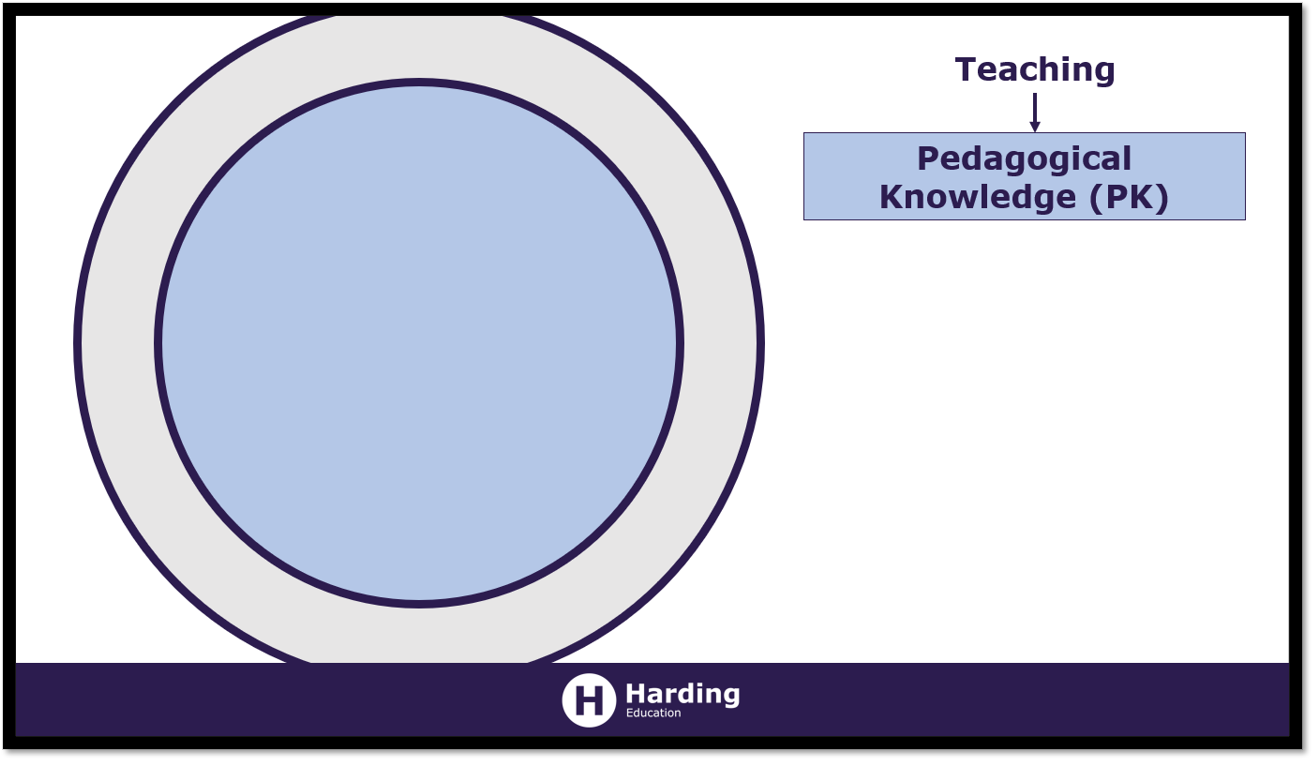
On the other hand, with this pedagogical knowledge in place, we can begin to travel deeper into the specific learning contexts, fine-tuning our teacher behaviours depending on which curriculum content we are trying to get across to which learners. The first place to stop is the curriculum domain. This pedagogical domain knowledge arises from sectioning off a segment of curriculum content through noticing there are intrinsic similarities. Therefore, that content requires a common pedagogical approach, specific to that domain. For example, within the primary maths curriculum we see that the domain of Number Fluency has common pedagogical principles that are different to the ones we would see within the domain of Problem Solving. The number fluency domain has predictable learning outcomes that are best taught explicitly through a direct instruction approach; essentially, a transmission of knowledge from expert to novice. Alternatively, teaching children to problem solve involves more open-ended tasks, looser guidance, less structured lesson trajectory and questioning resulting in more unpredictable outcomes. Teaching number fluency and teaching problem solving is more akin to teaching two different subjects. Leaving them pedagogically undifferentiated, under an umbrella of primary maths, would be a mistake.
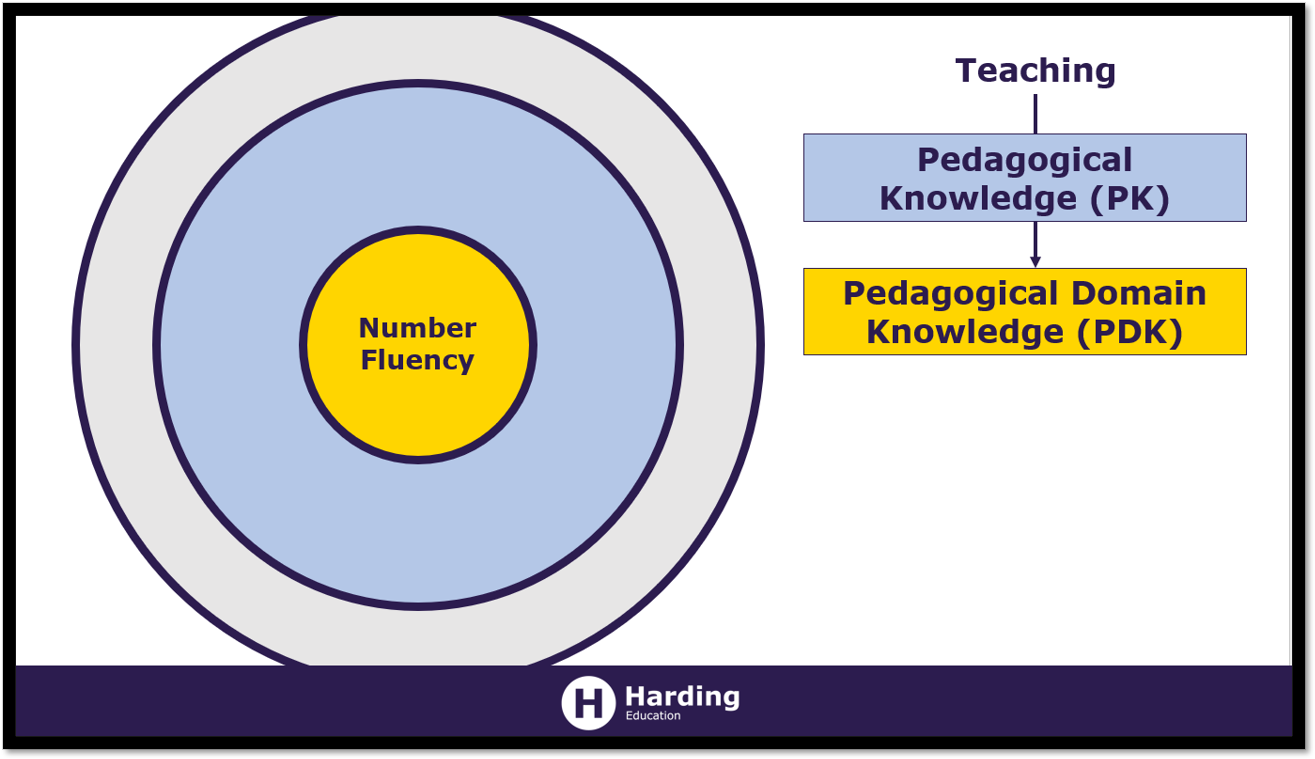
We can travel deeper still! When we turn up to ‘teach’ we need more than just pedagogical domain knowledge, we also need to know the sequence of learning that learners are moving along. In fact, for that particular sequence part, we need the complete progression in mind; with no small detail missing. This pedagogical content knowledge is what brings the curriculum intent to life. For example, within the domain of number fluency we can see that for us to teach a child to become fluent with the 3 times multiplication table, and for them to conceptually understand their fluency, we need to take a direct instruction approach. However, this doesn’t tell us the specific line of progression to take (for a high resolution, fully zoomed in, view of this specific pedagogical content knowledge see here). Teacher knowledge at this ‘high-rez’ level is where great teaching lives. Little wonder that the Great Teaching Toolkit starts with ‘Understanding the Content’ as the title of the very first section, and within that their first sub-point is ‘Having deep and fluent knowledge and flexible understanding of the content you are teaching’. However, acquiring this knowledge doesn’t happen overnight, and becoming experienced at teaching each specific sequence part with this knowledge already in place, takes longer still. The journey to Great Teaching isn’t a quick one! However, as with life itself, the enjoyment lies in the quest, the intrigue lies in the ineffable, and the fun springs out of the day-to-day interactions with the great people you meet along the way.
